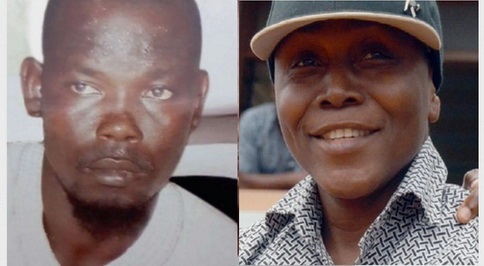Asabke Alangdi and Gregory Afoko
The question on whether or not trial by jury has outlived its usefulness in Ghana’s criminal justice system once again came to the fore yesterday when a seven-member jury, by a 4:3 majority decision found Gregory Afoko not guilty of conspiring to murder the late Upper East Regional Chairman of the NPP, Adams Mahama, but unanimously found his co-accused, Asabke Alangdi guilty of the same offence.
The jury however, by 4:3 majority found the two accused persons not guilty of the substantive charge of murder, thereby resulting in a hung jury and a retrial by a different jury.
While Afoko is to be retried as a result of a hung jury, Asabke Alangdi was sentenced to death by hanging after he was convicted by the court based on the jury’s guilty verdict on the charge of conspiracy to commit murder.
The Attorney General and Minister for Justice, Godfred Yeboah Dame, is among a host of people calling for the scrapping of the age-old trial system and hinted his intent to sponsor a bill to abolish it.
Gregory Afoko and Asabke Alangdi were before the court on two counts of conspiracy to commit crime and murder, for allegedly pouring acid on Adams Mahama in May 2015, leading to him suffering severe bodily burns and died the next day while on admission at the Bolgatanga Municipal Hospital.
The two pleaded not guilty to the two charges, and the prosecution led by Marina Appiah Opare, a Chief State Attorney called 16 witnesses to prove its case, and the accused persons also opened their defence and told their side of the story after the court had held that the prosecution had made a prima facie case against them.
Counsels in the case took their turns to convince members of the jury to return a verdict that favoured them – the prosecution urging them to return a guilty verdict while the defence urged them to return a not guilty verdict in favour of the accused persons.
Justice Afua Merley-Wood, a Justice of the Court of Appeal sitting as an additional High Court Judge, took four hours to sum up the evidence in the trial to members of the jury, explaining the position of the law as well as the ingredients that needed to be proved by the prosecution.
She also took her time to explain the evidence presented by the accused persons when they opened their defence and pointed out inconsistencies in their evidence before court and their caution and charge statements given to the police during their arrest.
The jury retired and returned after 38 minutes of deliberation and delivered a verdict that had many people in the courtroom totally surprised if not confused.
The jury, in a 4:3 majority decision, found Gregory Afoko not guilty on conspiracy to commit murder charge and by another 4:3 majority decision found him not guilty of the substantive charge of murder.
The jury, however, in a unanimous decision returned a guilty verdict on Asabke on the charge of conspiracy to commit murder but by a 4:3 majority returned a not guilty verdict on the substantive charge of murder.
Justice Merley-Wood convicted Asabke on the charge of conspiracy to commit murder, and Asabke prior to his sentencing maintained he was innocent, stating that “My Lord, I haven’t done anything and I am pleading with the court.”
Stephen Sowa-Charway, pleaded with the court to temper justice with mercy in passing the sentence.
He said the convict was a first time offender and “just like the first accused, the members of the jury were undecided on the charge of murder which, arguably is the more serious of the two offences. This decision is no doubt subject to several interpretations and consequences and decisions after today’s sitting.”
Mrs. Opare said it is very clear from Section 24 of Act 29 that the punishment for conspiracy to commit an offence is the same punishment that is meted out to the substantive offence “and in this case the substantive offence is murder and the punishment for murder is death, so the punishment for conspiracy to commit murder is death. That is what the statute says. The hands of this court are tied. There is no lesser punishment.”
“God have mercy on your soul,” Justice Merley-Wood told Asabke Alangdi as she sentenced him to death by hanging.
The judge, per Section 286 of the Act 30, discharged the jury and remanded Afoko in custody pending a date for the retrial by a different jury.
BY Gibril Abdul Razak

